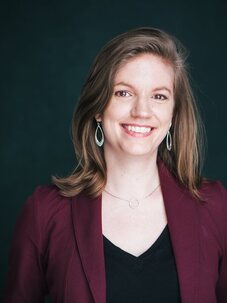
Abstract:
Marine sectors of the Antarctic Ice Sheet are prone to unstable retreat in a warming climate with global consequences. Observation and modeling-based studies suggest that these sectors have collapsed in the past and have the potential to contribute significantly to sea-level change in coming centuries, but the extent and timing of collapse remains uncertain. Constraining ice cover changes in Antarctica is challenging because the solid Earth, water and ice systems are strongly linked, and modern measurements of these systems contain a large signal from glacial isostatic adjustment (GIA) due to past ice mass changes. To complicate matters further, GIA predictions depend on the solid Earth’s rheological structure, which is characterized by significant lateral variability in Antarctica. This talk will focus on the physics of sea-level changes, glacial isostatic adjustment and solid Earth deformation following variations in the distribution of ice and water on the Earth’s surface, and the implications of these changes on the past and future stability and dynamics of the Antarctic Ice Sheet and its contribution to global sea level.
Short biography:
I am a Canada Research Chair in Ice Sheet – Sea Level Interactions and Associate Professor at McGill University in Montreal, Canada, and will be on sabbatical in Bergen for the next ~6 months. Before starting at McGill, I did a B.Sc. in Physics at the University of Toronto (Canada), a Ph.D. in Earth and Planetary Sciences at Harvard University (USA) and postdoctoral research in Atmosphere-Ocean Science at the Courant Institute of Mathematical Sciences at New York University (USA). My research program centers around developing numerical models and working with geophysical and geological datasets to understand the evolution of and feedbacks between ice sheets, global sea levels and the solid Earth in past, modern and future climates. I also enjoy teaching, course development and outreach and am actively involved in improving equity and inclusion in my communities.
Arranged date for the seminar talk: Feb 28, 2022 at 14:00, venue: Bjerknes lecture room 4020, Jahnebakken 5
